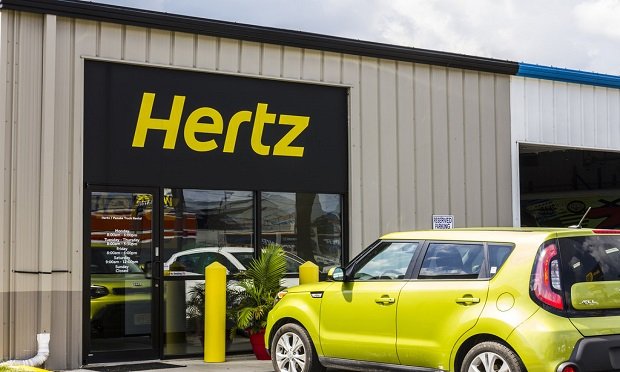 The traditional car rental industry began to push last year for new state rules on upstarts, in part through its trade group, the American Car Rental Association. (Photo: Shutterstock)
The traditional car rental industry began to push last year for new state rules on upstarts, in part through its trade group, the American Car Rental Association. (Photo: Shutterstock)
(Bloomberg) — The bill that turned Illinois into the focal point of a bitter debate over car-sharing last year started as a proposal about what happens when a rental car is stolen. The legislation, which would allow rental companies to punish customers if they don't return a stolen vehicle's keys and file a police report, had passed the state Senate unanimously and was expected to be similarly uncontroversial in the House. Then an amendment in mid-May scrubbed all the language from the bill and replaced it with a plan to regulate websites that allow people to rent their cars to strangers.
|Traditional rental car companies face-off against disruptors
The new language echoed the priorities of Enterprise Holdings Inc., America's largest car-rental company, which contributes tens of thousands of dollars annually to political candidates and parties in the state. The traditional car rental industry began to push last year for new state rules on the upstarts, in part through its trade group, the American Car Rental Association. The gist of the Illinois law — and of numerous other bills the rental industry has supported over the last year — is that rules and taxes that apply to traditional car rentals should also be imposed on car-sharing platforms.
Recommended For You
Want to continue reading?
Become a Free PropertyCasualty360 Digital Reader
Your access to unlimited PropertyCasualty360 content isn’t changing.
Once you are an ALM digital member, you’ll receive:
- Breaking insurance news and analysis, on-site and via our newsletters and custom alerts
- Weekly Insurance Speak podcast featuring exclusive interviews with industry leaders
- Educational webcasts, white papers, and ebooks from industry thought leaders
- Critical converage of the employee benefits and financial advisory markets on our other ALM sites, BenefitsPRO and ThinkAdvisor
Already have an account? Sign In Now
© Touchpoint Markets, All Rights Reserved. Request academic re-use from www.copyright.com. All other uses, submit a request to [email protected]. For more inforrmation visit Asset & Logo Licensing.







